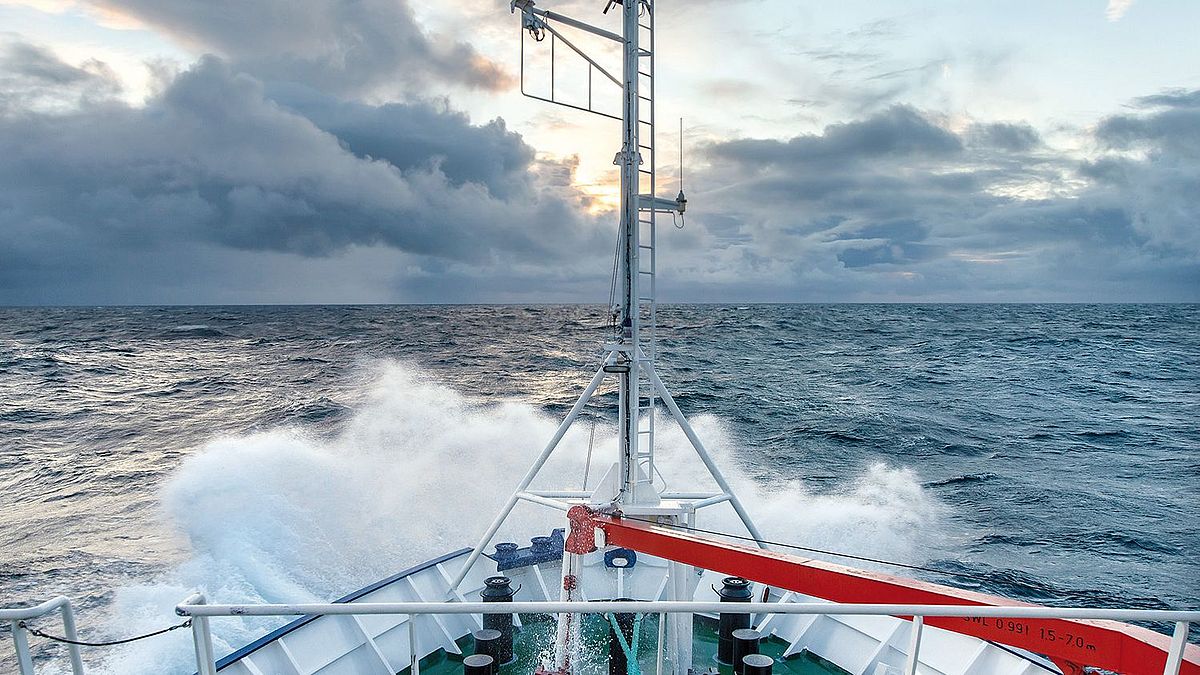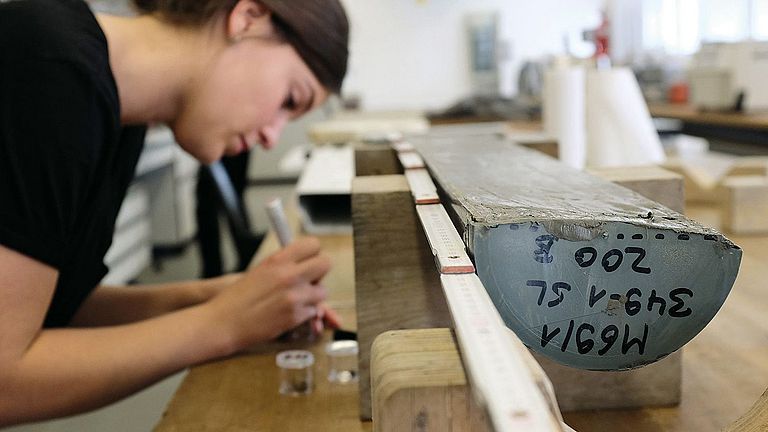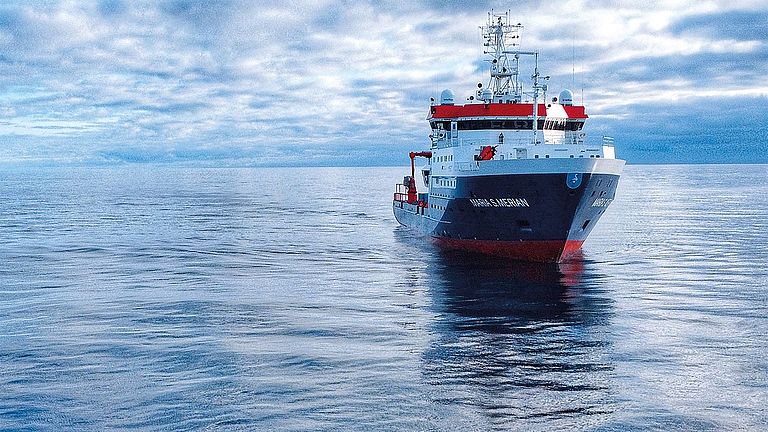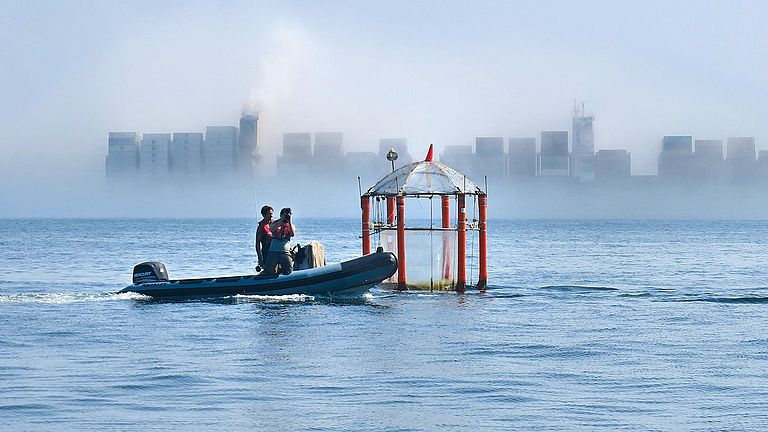Ocean and Climate
Our climate is determined by the complex interactions between the atmosphere, the hydrosphere, the biosphere and the geosphere, and it is ultimately the basis of all life on our planet. The ocean is one of the components, especially on long time scales. In addition to natural fluctuations controlled by interactions of the various components and the astronomical boundary conditions, the ever-increasing influence of human activities has been contributing to the changes in the climate system since the end of the 19th century. As a result, the ocean is not only getting warmer, but the seawater is becoming more acidic, loses its oxygen, and the sea level is rising.
GEOMAR Helmholtz Centre for Ocean Research Kiel is making an important contribution to a better understanding of the complex climate system. "Ocean and Climate" is one of the three central research topics at GEOMAR. The research spectrum ranges from natural climate fluctuations in the past to the detailed study of the current ocean system to the modelling of future climate states, which enables the assessment of possible consequences and the evaluation of climate protection and climate adaptation strategies. GEOMAR offers the best conditions for this: Scientists from a wide range of disciplines work together to investigate physical, chemical, biological or geological processes in the ocean in order to achieve a holistic view of the climate system and its changes and interactions with ecosystems.










![[Translate to English:] Ein Mann mit blauer Strickmütze hockt am Strand hinter einer Kühlbox mit blauem Deckel und hält einen Seegras-Spross hoch.](/fileadmin/_processed_/6/9/csm_2025-06-03_Seegras_Wackerballig_c_SarahKaehlert-4_6a836eb42b.jpg)
![[Translate to English:] A dead fish lies at the beach](/fileadmin/_processed_/f/0/csm_AdobeStock_26398862_27d367dd98.jpeg)
